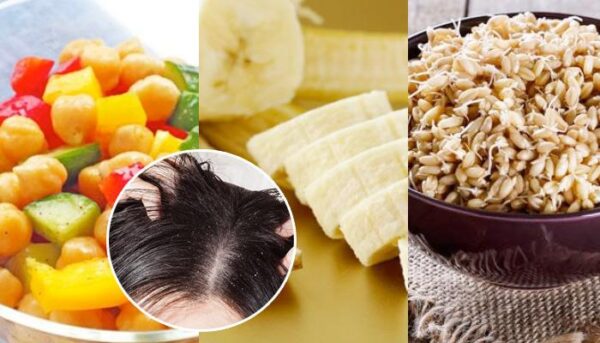If you’re reading this, you probably have had or are currently suffering from dandruff. Perhaps it’s a problem that flares up now and then, leaving you literally scratching your head. It’s a condition that doesn’t discriminate – whether it’s dandruff in men or dandruff in women, the flakes and itchy scalp can wreak havoc on anyone’s day.
Regardless of where and when, dandruff is a problem. Caused by an oily scalp and a fungus known as Malassezia Globosa, dandruff is itchy, visible and distressing. People pour months into understanding how to get rid of dandruff, but most don’t think about the foods that cause dandruff and the foods to reduce dandruff. Creating a balanced diet for dandruff is a vital step in handling your scalp and hair troubles.
What diet should you follow?
Foods you should add
- Healthy fats – Although there is no direct link between fatty acids and dandruff, it can have a positive effect on skin function and hair health (indirectly helping you fight dandruff). Omega 3 and Omega 6 fatty acids are anti-inflammatory in nature, increasing skin hydration, and potentially help control sebum production. Add salmon, tuna, eggs to your diet. Peanut butter, avocado, flaxseed, olive oil and walnuts are excellent options for those who follow a plant-based, vegetarian diet.
- Zinc and biotin – Your scalp produces sebum to hydrate and protect your head. Unfortunately, too much of it can lead to dandruff. This is where zinc comes in. Zinc can help in regulating the sebum levels on your scalp, while helping in hair tissue growth and boosting the immune system. Zinc also needs biotin, a type of Vitamin B, for proper absorption. Include eggs, oysters, tomatoes, bananas, dark chocolate or yoghurt in your diet for dandruff.
- Allicin – Although this will probably give you better results when applied topically to the scalp, allicin is an extremely healthy compound that’s antifungal and antibacterial in nature. It can also improve collagen production and blood circulation. Use crushed garlic to increase your intake of allicin.
- Hydrate – Nothing works better than water in helping your system reset. Drinking enough water, especially in the summers, can keep your body cool. This has a direct impact on the amount of oil secreted by the scalp, and thereby impacts your dandruff.
Foods to avoid dandruff
Part of the diet involves removing foods that can aggravate dandruff.
- Sugar – Excessive consumption of sugar can play havoc with your insulin levels and your hormone secretions. This is directly linked to your sebum production and secretion, which can aggravate your existing dandruff condition and cause inflammation.
- Food Allergens – Always check for food allergies as this can lead to inflamed skin on the scalp and excessive oil production. Although not that common, allergic reactions can lead to a bout of dandruff. Check with a doctor for solutions.
- Refined carbs, milk and alcohol – A weird combination of foods to avoid, but all can lead to increased dandruff. Refined carbs spike insulin levels. Milk can disrupt your hormonal secretions. Alcohol can decrease the amount of zinc and biotin absorption. Reduce them all.
While diet for dandruff can help, it’s a trial-and-error process which might not give you immediate results. Make sure to use a shampoo for dandruff, like the Head & Shoulders Neem, which can give you protection from germs and dandruff causing bacteria. If you’re looking for a hydrating effect, use the Head & Shoulder 2 in 1 Smooth and Silky. This gives you the combined effect of an anti-dandruff shampoo and conditioner, which can rescue damaged hair strands while leaving you upto 100% dandruff free.

